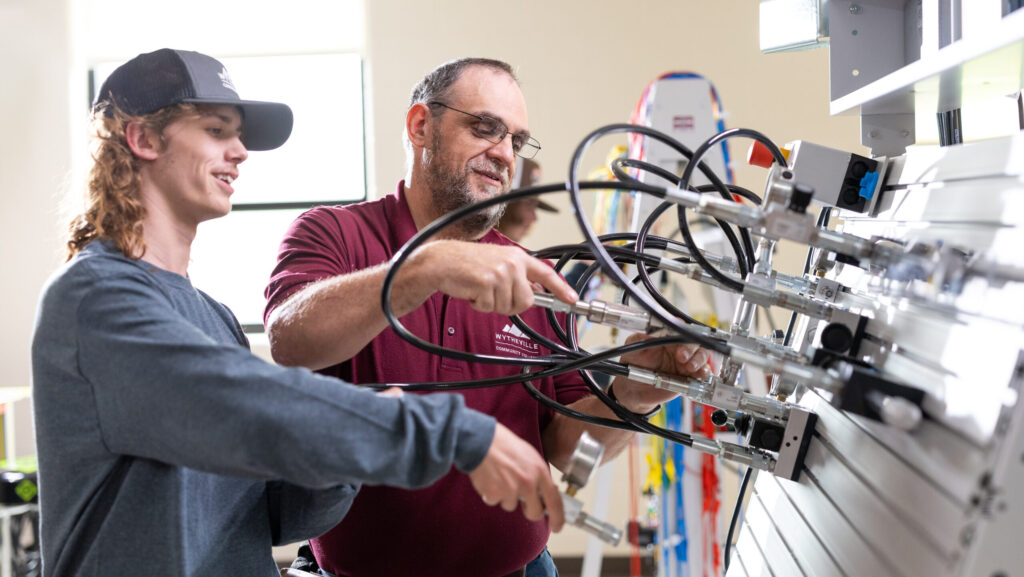
Learning doesn’t have to be confined to the walls of a classroom. In fact, on-site learning experiences like internships and apprenticeships can give students valuable, industry-specific skills that can go beyond what is learned at a desk.
Barry Richmond, apprenticeship coordinator at Danville Community College (DCC), knows just how much experiential learning – specifically, apprenticeships – add to a student’s value as a job applicant and employee.
“[Students] can go through a traditional credit program, but with an apprenticeship program, they are sticking strictly with those competencies they need in their given area, in their given profession, so they can get right to it,” said Richmond. “Some students like the rigor of a two-year associate program. There’s nothing wrong with that. Others want to get in, get out, and go to work.”
Streamlined Programs Designed For Industry Needs
In today’s fast-paced job market, gaining practical experience and skills is crucial for success, making apprenticeships a viable alternative for those looking to jumpstart their careers. Students attending community college gain a valuable education that effectively prepares them to pursue their desired career or further their education. Apprenticeship programs, on the other hand, are completed outside of traditional schooling and set students up for career success even quicker.
“With the apprenticeship program, we’re looking specifically at what the industry needs,” said Richmond. “So, we can tailor a program that meets the industry needs as well as the student, and we can do it in a shorter time.”
Each apprenticeship opportunity brings new, exciting opportunities for unique, industry-specific skills. Like no two jobs or careers are the same, no two apprenticeship programs are alike.
“You can have two different companies; let’s use the medical industry, for example,” said Richmond. “A major hospital or maybe a small network of doctors’ offices: though they are both medical, [their apprenticeship programs] are not going to look the same because their needs are going to be different.”
Filling in The Gaps
Students pursuing careers in certain industries have a key question to answer when joining the workforce: what do my potential employers need, and how can I fill that gap? The answer, in many cases, can be found within an intentionally sought-out apprenticeship.
“I get to talk to companies and help them with their needs to find exactly what they’re looking for,” said Richmond. “Because we’re talking about structured training and we’re talking about giving them additional value in the marketplace to hone their skills, the individual gets to gain credentials, and to be valuable to an organization.”
Impacting Students and Communities
Not only do apprenticeships provide students with valuable skills that increase their chances of employment, but they also supply employers with ready and able candidates who are eager and prepared to assist with company needs.
“I will say that the work that I do, I believe adds value to our entire area,” said Richmond. “It adds value to DCC because we’re able to bridge those gaps, and I feel like I’m able to make an impact in our community. That’s what it’s all about.”